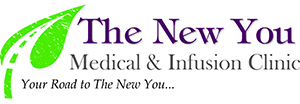Kawasaki Disease Treatment in Sunnyvale, TX
What Is Kawasaki Disease?

Kawasaki disease, also sometimes referred to as mucocutaneous lymph node syndrome, is a rare but serious childhood illness that causes blood vessel inflammation. The disease can affect any type of blood vessel, including the arteries, capillaries, and veins, and can also impact a child's lymph nodes, skin, mouth, nose, and throat.
While the condition is not contagious, it can cause significant discomfort in your child and lead to more serious complications, such as acquired heart disease , if left untreated. Fortunately, treatment is available to prevent your child from suffering any lasting damage.
To schedule an appointment with a healthcare practitioner in Sunnyvale who specializes in Kawasaki disease treatment, call (817) 203-2760 or contact The New You Medical & Infusion Clinic online.
What Causes Kawasaki Disease?
Although what causes Kawasaki disease is currently unknown, the disease appears to be seasonal, occurring most often in late winter and early spring. Several theories suggest that bacteria, viruses, genes, or other environmental factors may play a role in the development of the disease.
In addition, there are several risk factors of Kawasaki disease, including:
- Gender: Boys have a higher risk of developing the disease than girls
- Age: According to the Kawasaki Disease Foundation, 75 percent of patients are under the age of five
- Ethnicity: Children of Japanese or Korean descent have a higher likelihood of developing Kawasaki disease
Kawasaki Disease Symptoms
Signs and symptoms of Kawasaki disease usually arrive in three stages.
Symptoms of the first stage include:
- A fever of about 102 F that lasts about five days
- Red eyes
- A body rash
- Irritability
- Swollen red lips, tongue, hands, and feet
In the second stage, Kawasaki disease symptoms may progress to:
- Skin on the hands and feet peeling off
- Joint pain
- Vomiting
- Diarrhea and abdominal pain
In the third stage, Kawasaki disease may either dissipate on its own or develop into further heart complications, including:
- Vasculitis (inflammation of the blood vessels, usually in the coronary arteries)
- Myocarditis (inflammation of the heart muscles)
- Aneurysm (the weakening and bulging of the artery wall)
- Increased risk of blood clots and heart attack
- Heart valve problems
How to Diagnose Kawasaki Disease
There is no specific lab test that can definitively diagnose Kawasaki disease, so in most cases, your healthcare practitioner will rely on your child's symptoms to arrive at a diagnosis.
Another important step to diagnosing this disease is to rule out any other diseases with similar symptoms, such as scarlet fever , measles , or toxic shock syndrome . Doing so includes various tests, such as an echocardiogram to detect any heart problems, an electrocardiogram to measure the heart's electrical impulses and detect an irregular heart rate, or a blood or urine test.
Kawasaki Disease Treatment
Prompt treatment of Kawasaki disease is important to prevent complications. Receiving treatment within ten days of noticing symptoms may greatly reduce the chances of lasting heart damage.
Kawasaki disease treatment begins in the hospital and can include intravenous (IV) medications such as a gamma globulin (also known as immunoglobulin or IVIG), in which an immune protein infusion is given through a vein to reduce inflamed blood vessels. Aspirin can be used to reduce pain, fever, and the risk of blood clots if necessary.
Due to the risk or Rye Syndrome, do not give your child aspirin until first talking with his or her healthcare provider. Although aspirin can be taken at home, you should stop taking aspirin if your child develops the flu or chicken pox. Skin lotion may be used if your child's skin is dry.
A few months after treatment has ended, follow-up appointments or tests may be needed to detect possible heart problems. Further treatments to address heart problems such as aneurysms can include anticoagulant drugs and operations to improve blood flow through the arteries.
Kawasaki disease can be a stressful and scary disease with life-long consequences for your child. To learn more about Kawasaki disease treatment in Sunnyvale, call (817) 203-2760 or contact The New You Medical & Infusion Clinic online.
The New You Medical & Infusion Clinic
Address
100 Grapevine HwyHurst, TX 76054
(817) 203-2760
https://www.newyoumedclinic.com/
Hours
Mon:
10:00 am - 6:00 pm
Tue:
10:00 am - 6:00 pm
Wed:
10:00 am - 6:00 pm
Thu:
10:00 am - 6:00 pm
Fri:
Closed
Sat:
Closed
Sun:
Closed

